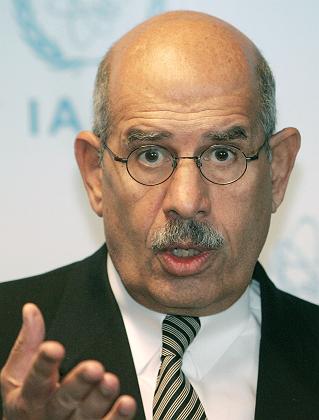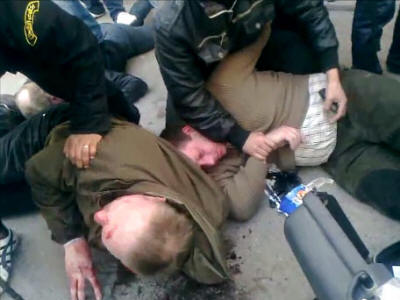|
3 February 2011
To better understand the uprising in Tunisia and the crisis unfolding in
Egypt, it is necessary to understand the historical context of the
situation.
The flag of the Arab revolt bears a triangle (below video).
These families went on the establish some of the most repressive governments in the entire history of the region. A good example are the rulers of Jordan and Libya. The rulers of Jordan now exclusively marry into Western ruling elite.
Libya has such close secret
ties with the British ruling elite that it seems that the Lockerbie bombing
was “outsourced” to Libya instead of the MI6.
In some cases, they allowed local
powers to serve as clients of Western powers.
Is the unrest in Egypt and Tunisia a part of this
operation?
There is the case of German/Swedish snipers/hunters being caught in Tunisia (below video).
The Western media appears to be magnifying the crisis (this is the same media that told you that USA was attacked by Bin Laden on 9-11).
Like all revolutions, the mobs only seem to be content in accomplishing a shake up of the existing power structure. Who gets to inherit the power is not questioned.
In the case of Egypt, Mohamed ElBaradei is already being touted as a new leader for Egypt.
ElBaradei won a Nobel prize after the Iraq War. Discerning readers will note that Nobel prizes usually recognize those who have done immense service for the Cabal.
And what was ElBaradei’s service to the Cabal? Contrary to popular perception, ElBaradei facilitated the Iraq Invasion!
This is best described by Gulf News’ Amir Taheri as follows:
In other words, ElBaradei facilitated unwarranted suspicion towards Iraq.
Of course, ElBaradei did many “Nobel” things, like dismissing WMD reports that were outright forgeries, and these have been exaggerated. But his role in the IAEA being used as a pawn to cast suspicion towards Iraq has been all but forgotten.
Prior to the invasion of Iraq, ElBaradei promised he would resign as director of the IAEA if an illegitimate invasion of Iraq was launched. But he didn’t.
ElBaradei also insists that the IAEA is not a stooge of the CIA, despite the fact that the IAEA doesn’t seem to mind Israel’s atomic program. Interestingly, ElBaradei’s most recent stint at the IAEA was involved assuaging suspicions about Iran’s nuclear program (Iran is already with the Cabal).
If ElBaradei indeed has the blood of the Iraqis on his hands, the violence in Egypt would be picnic in comparative terms.
Foreign Snipers caught in Tunisia with their equipment. Their bags were full of catridges. We were later told that they were "hunters."
Was this inhospitality out of sympathy for the Tunisian people? Those that know the history of French involvement in North Africa know the answer. It is obvious that the Tunisian President was suddenly no longer a preferred client.
We are now learning that the United States State Department is now “reviewing” the two billion dollar bakhsheesh that it has been giving yearly to the Egyptian rulers for signing the Camp David agreement that made Egypt the first Arab country to recognize Israel.
I am not implying that the rulers of Tunisia and Egypt deserve to be sympathized.
To the contrary, one can observe their naiveté in trusting Western powers and Western Intelligence Agencies. Little do they know that being good clients does not exempt them from the predatory designs of their Western counterparts. In fact, the more willingness they show to become the perfect thugocratic client state of Western powers, the more susceptible they become to overthrow by the Powers That Be.
I will show two historical
cases to demonstrate the same.
The
revolutionaries managed to create a powerful police state that now
spearheads the clash of civilizations rhetoric prescribed by the Powers That
Be. The secret ties of the Western ruling elite with some of the
revolutionaries
has been documented and needs no repetition here.
Reza and his successor, Reza Pahlavi assumed that the continuation of their rule depended upon continued subservience to Western Powers as operators of a client state. Little did they know that the Powers That Be saw them only as temporary placeholders until Iran was consolidated under a new regime that was to play a critical role in advancing the “Clash of Civilizations” agenda.
Reza turned over the police, intelligence and economic affairs of his country to his Western “friends” who promptly set out to use them to create the conditions necessary for the revolution. In fact, the revolution would have never succeeded were it not for the measures pioneered by Reza’s Western friends.
Once the revolution was underway, Reza was even denied exile in Western countries. Apparently, he was no longer a preferred client.
The Powers That Be now had Iran. They didn’t need a client anymore. Even in exile, members of the Pahlavi dynasty still saw themselves as likely client candidates for Iran, much to the irritation of the Powers That Be, who secretly opposed them at every turn. One major prince associated with this dynasty has committed suicide in Boston.
If only the Pahlavis better understood that Western powers were no longer interested in
their client services.
He went to great lengths to ensure just this, even humiliating the entire Arab World by signing the Camp David agreement.
Little did he know that the same Powers he was kowtowing to were also actively seeking to replace him with their own people. In 1977, Sadat naively assumed that opening up Egypt’s economy to the West would bring in Western capital.
The World Bank moved in, insisting that he remove subsidies on food and divert that money towards the World Bank instead, so that he could get loans. Sadat could not comprehend that he was financing his own overthrow, and naively towed along.
What followed were the Bread Riots in which 800 Egyptians were killed and Sadat was almost overthrown.
Sadat
managed to quickly cancel the World Bank policies before he was overthrown.
But the Powers That Be never give up. Sadat was assassinated by an Islamist
group, although it seems that this event did not bring up the desired
shakeup (and therefore the current crisis).
One such shadowy operative, Ayman Zawahiri is believed to have procured the weapons used in Sadat’s assassination, although he avoided any involvement in the actual operation. He later infiltrated Bin Laden’s organization and succeeded in introducing a “clash of civilizations” rhetoric, which jeopardized the operations of Bin Laden. Although it did help bolster the case of Bin Laden being involved in the events of 9-11.
After 9-11, Zawahiri released a number of videos gloating how his group carried the attacks, and special messages for his followers.
Unlike the Bin Laden gloat videos which were never fully authenticated, Zawahiri’s videos appear to be authentic, suggesting he has survived (or was allowed to survive) the American onslaught and continues to infiltrate Jihadist groups.
Such videos serve little purpose other than being a viral marketing campaign for the necessity of the War on Terror. Like a true operative of Western Intelligence, Zawahiri would go globetrotting prior to 9-11 on multiple fake passports, to places as far off as Thailand and Switzerland.
He was believed to have also worked for Russian
Intelligence (to suppress the Chechen jihad) and Iranian Intelligence (which
was an adversary of the Taliban).
But the failure of their client rulers to address the unrest has resulted in outside forces hijacking dissent to stampede in their New World Order. I don’t expect the remaining client states in the Middle East to suddenly put their people’s interests before themselves. But at least, in the interest of common sense, they should be able to distinguish between friend and foe.
Serving as a client state for Western Powers is no longer as lucrative as it once was. It can be downright dangerous, as Western Powers are now bent on supplanting clients with people straight from their think tanks.
If only the client rulers of
the Middle East knew that think tanks and intelligence agencies based in
Western countries were bigger sources of mayhem than the unarmed protestors
on the streets.
|


